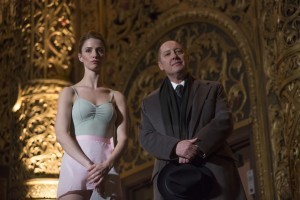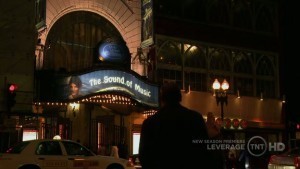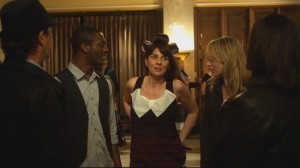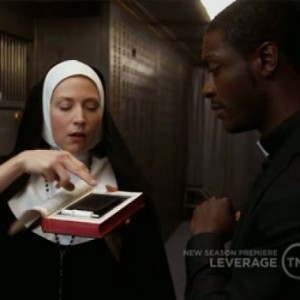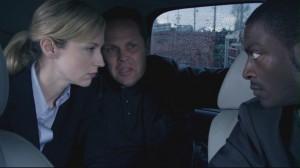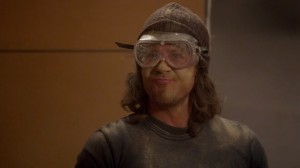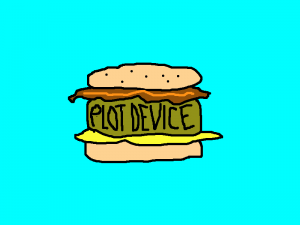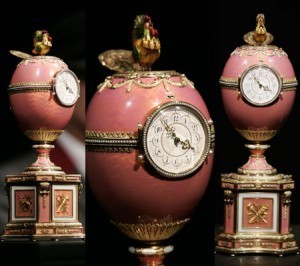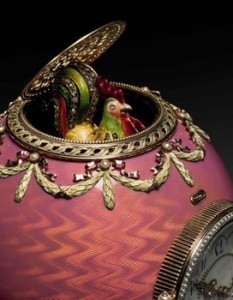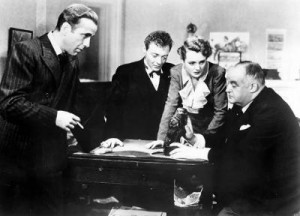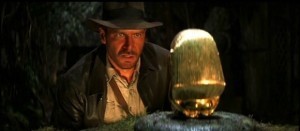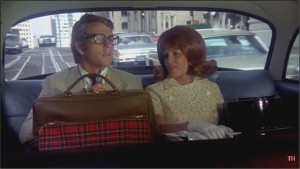Jennifer Crusie's Blog, page 273
March 19, 2014
The Blacklist and Suspense
I just finished watching The Blacklist episode “Mako Tanida (No.83).” That’s the first time in a long, long time that my heart actually pounded while I was watching or reading story, my breathing got faster. I know very little about writing suspense except that it’s not the same as surprise and that it’s almost always better than surprise, so now I’m trying to think of how they did that. My first guess was that it came down to two things.
1. I care a lot about the people in the story.
2. This show has proven over and over again that anything can happen.
But that doesn’t explain it, really. Why did I care in the scene with Tom, Jolene, and the Cowboy? I don’t like any of them and yet my pulse was racing. The people I care most about–Red and Liz–weren’t even in most of this episode. Okay, I like Ressler, too, but I’m not invested in him, and yet that climax had me holding my breath.
Did anybody else see this episode? Did you have the same reaction? Do you know why?
WARNING: There are going to be massive spoilers in the comments as we discuss this.

March 18, 2014
Questionable: How Different is Collaboration from Single Author Writing?
Peggy asked:
How different is your writing process when you work with another author (or authors, as in your more recent collaborations)? Does anything fundamental change about how you plan (or don’t plan) the storyline, conflict, beats, etc.?
Completely different.
When you write by yourself, you can do anything you want, change things as you go along, writing out of chronological order, you own the world.
When you collaborate with somebody, you give all of that up, but then so does he or she. So a good rule of thumb is not to collaborate unless you’re getting something really great in return. In the case of Bob Mayer, I was getting somebody who could write male POV really well because he was male. I was getting somebody who understood action stuff because he’d been a Green Beret. And I was getting somebody who worked exactly the opposite of the way I did, so I was forced to move outside my comfort zone, always a good thing. It was worth the trade-off in power and freedom.
I generally start a book without a plan, just write to see who and what shows up to play. But if you’re collaborating, you start by negotiating a plan before you put anything on paper. In my collaborations with romance writers (The Unfortunate Miss Fortunes, Dogs and Goddesses), we began with a premise, three sisters who were hiding the fact that they were witches, three strangers who were about to find out that they were part of the same triple goddess. When I collaborated with Bob, we started with characters. For Agnes and the Hitman, I said “I want to write about a food critic.” He said, “I want to write about a hit man.” Then we tried to figure out how the hell a food critic was going to meet a hit man. So in the case of the romance collabs, we started with a premise and then each came up with a character who would fit that premise; with Bob, we came up with characters and then designed a premise that would bring them together.
The next step was designing an antagonist to oppose all the protagonists. To do that we had to figure out what the protagonists wanted and why, how the antagonist would block their attempts to get those goals, and why the antagonist would do that (in pursuit of his or her own goal, of course).
Once we had that, we plotted the turning points; that is, we’d say, “At this point in the story, THIS will happen to all the protagonists.” They all started at the same place in the plot although maybe not in the same scene, they all hit and reacted to the same turning points at the same time, and they all came together at the climax to defeat the antagonist.
So lots of prep work.
Then with the romance collaborations, we’d go off and write three separate romances, keeping in touch while we wrote, writing each other’s characters into our stories wherever they’d overlap. We’d swap scenes with each other so that writers could rewrite their own characters, make sure their actions were in character and their voices stayed the same, and then at the end, we’d meet in one place with a lot of post it notes, write a slug for each scene on a post-it (we each had a different color) and then put them in chronological order on a wall, separating them into strips to show what day it was. We could see by the color if we had too many scenes about one character grouped together, so we’d do some rejiggering to even things out. And we did a lot of reading and responding to each other’s scenes, especially on Dogs and Goddesses. Then we put them all in one doc, and we read it as a complete novel, looking to see where the transitions weren’t smooth, etc. We were essentially writing three stories that interlocked instead of collaborating on one story.
With Bob, things were different because we were only writing one story for the first two books; that is, he wasn’t writing an adventure and I wasn’t writing a romance, we were writing a romantic adventure that was one plot. That required a lot more actual writing together, so we’d be swapping sixty or seventy e-mails a day, trying to keep our scenes fitting together. Wild Ride was the easiest because we did that one as parallel plots so we could write separately and then put the scenes together, but even then, we kept one master document going and kept in constant touch. We drove each other crazy, but I think we were both learning so much that neither one of us gave up.
The key to making those collaborations work was that we each had complete control over our characters. If somebody wrote a scene in which my character did or said something I knew she wouldn’t say or do, I could go in and say, “No, she’d do THIS.” And the others could do the same with the scene in which I wrote their characters. I think that’s crucial to making a collaboration work. Even though you’re cooperating with someone, you have to have your own sphere in which you have control. (For my collabs it was always character, but others split the work into different spheres. The Ellery Queen collaboration was divided into research and plotting from one man and writing from the other.) That control over your part of the collaboration and the sense that the work is divided equally are crucial to any collaborative success. The minute you start resenting each other or interfering in each other’s spheres, you’re toast.
So writing collaborations is completely different. I learned a lot on all my collaborations, but none of them were easy. Unless you have a really good reason to collaborate (and I definitely did on all of mine), stick to writing solo. It’s much, much easier.

March 17, 2014
Questionable: When Is A Scene Not Necessary?
Sam asked:
How do you decide which events deserve full scenes, as opposed to narrative summary?
The quick and dirty answer is anything that arcs character and moves the plot should be done in scene so that the reader can see it and be part of the journey. Anything that doesn’t arc character and move the plot should be summarized as briefly as possible or just cut.
Let’s pause for a moment and talk about summary. Summary means condensing information down to the shortest possible description instead of playing the event out in front of the reader. Summary covers a lot more time than scene does because unless you’re writing a novel that takes place in three hours, you’re not writing in real time. There’s that eight hours of sleep your character gets every night. The time he or she spends in the bathroom. The time he or she spends at work doing routine things. Taking out the trash. Filling the car with gas. Unless any of that has a direct bearing on the story–the bad guy comes up and flicks a match into the tank while she’s filling it–you don’t need to write it and in most cases you don’t even need to summarize it.
That’s because most of normal life is an unmarked state, the stuff that usually happens, so the reader will assume it for you. You write, “The next morning, Jane left for work . . .” and the reader assumes Jane had a good night’s sleep because you didn’t say she had a lousy one. A lousy night’s sleep would be a marked state, and marked states have to be put on the page because they’re counter to the reader’s assumptions. This can be a little difficult if the marked state is something the POV character is used to (which makes it unmarked for her) because you’ll have to find a way of putting it on the page even though the story’s in her POV and she’s not noticed it. If your character gets up every morning, leans out her window, and shoots a pigeon, that’s unmarked for her, but marked for the reader, so you’ll have to write something like, “Jane leaned out the window and shot her morning pigeon and felt immensely cheered that she got two with one shot; that hadn’t happened more than twice in the ten years she’d been picking them off.” If after that all she does is get dressed, eat breakfast, catch the bus to the office, take the elevator to the twelfth floor, say hi to her secretary, sit down at her desk, and hire an assassin, your next sentence can be, “An hour later, she was still cheerful as she sat at her desk and surveyed the vita of the latest applicant for the assassin job.” I’d guess that 90% of all summary is showing time has passed. Do it in a phrase, not a sentence. It’s a marker, not part of the story.
So the rule of thumb is, if you can take a scene out of your story without damaging your story, just summarize it in one sentence or cut it and move on.

March 16, 2014
Next Leverage Sunday: The 2 Live Crew Job
Forgot to put that in the previous post. Sorry.

Leverage Sunday: The Beantown Bailout Job: Rebooting the Community
The first episode of the second season nails down what the first season built toward: Sophie, Eliot, Hardison, and Parker are a team; Nate still think he’s better than they are. “I am not a thief,” he tells them when they try to get the gang together again, but there’s somebody in trouble and Nate’s a sucker for saving people.
Nate starts off taking a straight, white collar job, but bolts at the last minute; that’s his old life and he can’t go back. He heads for a bar but is interrupted by . . .
Inciting Event:
. . . an accident right in front of him. He rescues a little girl and her father, whose car was sabotaged.
Later that night, he goes to Sophie’s debut as Maria in The Sound of Music and sees Parker, Hardison, and Eliot: Sophie invited everybody, telling them that she doesn’t sing as well as she acts, but oh well . . . When her performance is panned, the team tries to talk Nate into doing a theft to cheer her up, but he refuses, saying, “I am not a thief.” Then he goes upstairs to his condo above the bar and is attacked in his apartment. Sophie saves him and then knocks him out by accident; when he comes to, his apartment is full of the team.
Change of Plans: The team finds out about the sabotaged car and investigates in spite of Nate’s refusal to get involved (“I am not a thief”), turning the plot from the story of Nate trying to go straight and sober alone, to the story of Nate protesting while the team moves into his apartment and begins to investigate.
The team discovers a mob/bank scam and starts compiling intel, and as Nate looks at what they’ve gathered, he’s drawn into analysis and planning in spite of himself.
Point of No Return: Nate talks himself back into the game, turning the plot from the story of Nate trying to get rid of the team to the story of Nate leading one more Robin Hood job.
The team constructs a perfect con, targeting the mob boss in charge of the operation (FUSCO!) and executing it beautifully. But there’s a problem.
Crisis: The mob boss isn’t in charge, it’s the banker, and their whole con is useless, turning the plot from a close-knit team executing a well-organized con to a close-knit team improvising on the fly.
The team changes the plan, fakes a death, impersonates a British crime figure and two FBI agents, and sends Leary the banker off to . . .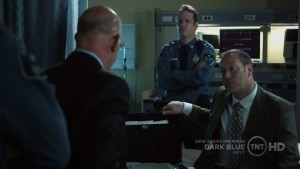
Climax: . . . the hospital where he runs into the state police who discover that he’s loaded with evidence that incriminates him.
Resolution: Nate agrees to keep working with the team until he finds a real job he likes enough that he’ll stay out of bars. He asks Sophie to dinner and finds out she’s dating somebody else, then walks away from a drink and goes back to his apartment where he finds Hardison turning it into a team command center. When Nate protests, Hardison explains that he bought the building as Eliot cuts a door in the wall to the next apartment. The family is home again, and the team is on for one more job, even if Mom is dating somebody who’s not Dad.
COMMUNITY STATUS: The Kids Are All Right, Parents Not So Much
This episode had to do a helluva lot: Find a plausible reason for the team to meet again (thank you, Sophie, that helps make up for the second David), find a plausible reason to team up again (they miss each other because it’s more fun as a team), find a plausible reason to drag Nate back into the team (Hey, Nate, you got any people in trouble you want to help?) and then show what all of last season was about.
One way to judge the arc of a story is to look at the first scene/chapter/episode and the last, and compare the characters. The team in the first episode of the first season wasn’t even a team; they were a bunch of people hired to do a job. The same people at the beginning of this episode aren’t just a team, they’re a great team, focused, light on their feet, able to make split second changes in their plans because they trust each other and have great communication skills (and not just because of Hardison’s coms). If the promise at the end of the first episode in the first season was, “Watch these people become a team,” the promise of the first episode of the second season is “Watch what this team can do,” because once viewers/readers have watched a team form, they want to see it at work.
Now if they could just keep Nate from drinking and Sophie from acting . . .

March 15, 2014
Why Emma’s Book Didn’t Sell
Some of you asked why Emma’s book didn’t sell. I can explain.
Here’s Emma’s synopsis again:
A broke thirty-nine-year-old single mother and author of one semi-successful literary novel goes to Nantucket out of season to write a romance novel to make a quick buck even though she’s given up on men forever and has almost as little faith in literature. She does some research on a forty-year-old murder mystery to give her romance some plot and deals with her seventeen year old daughter while trying to keep her romance under control. She also copes with the house which is in terrible condition with the help of the landlord’s son, an exasperated contractor. The harder she tries to keep her life and her plot under control, the more things spiral out of hand: her daughter’s dating an island boy who looks like pure trouble, the house is coming down around her ears, her romance heroine keeps going off in her own direction, and no matter how she tries to deny it, she definitely has the hots for the contractor who has somehow ended up in her book. And as an added irritant, somebody seems to be spiking her research, getting nastier and nastier the more she learns.
Now let’s look at the basic story here.
Who’s the protagonist? Emma
What’s her goal? Write a romance novel.
Who’s her antagonist: Whoever’s spiking her research. (Spiking?)
What’s his or her goal? Stop Emma from writing the book.
Those of you who have done conflict boxes can already see the problem, but to put it in the form of a question:
Is the antagonist stopping Emma from her goal? No.
The antagonist is making it harder for her to write this particular book, but since all Emma wants is to write a romance novel, she can write about anything. She has no need to write this particular novel, no reason to spend that much money on a rental, and every reason to abandon it if the antagonist becomes violent or threatening because she has her daughter with her. Therefore, there’s no conflict lock and no center to the book and no reason for a reader to care. You may think Emma is fun, but just following a fun character around for 100,000 words does not make a story, especially if you start wondering why the fun character doesn’t pick up her daughter and get the hell out of Dodge before the kid gets hurt.
Then look at the writing-the-sex-scene scene.
Who’s the protagonist? Emma
What’s her goal? Write a sex scene.
Who’s her antagonist: There is none.
Mason’s in there but he’s not stopping her from writing, in fact, he’s in the other room fixing the sink and only interrupts her at her request. At the end of the scene, neither of them have changed the other and the plot hasn’t moved. It’s one of those scenes that’s full of air and color and does absolutely nothing to advance the story. And the problem with those scenes is that the reader will try to make them work because he or she will assume there’s some there there. Yes, Emma and Mason are attracted to each other, but they’ve been that before and they don’t do anything about it here.
So the whole proposal was me tap-dancing, doing fancy twirls to show off my brightly colored underpants, and doing absolutely no storytelling. Then add in that I set it in a location I knew nothing about that my editor knew well, and it was never going anywhere. She was absolutely right to reject it.

Cherry Saturday: Mar. 15, 2014
Today is Dumbstruck Day. Dumbstruck means “so shocked or astonished as to be rendered speechless,” something that never happens to the Argh people who, regardless of shock or astonishment, are never without words.

March 14, 2014
The MacGuffin, Part Two: Why
Alfred Hitchcock defined the MacGuffin as “. . . the mechanical element that usually crops up in any story. In crook stories it is almost always the necklace and in spy stories it is most always the papers.” It is not synonymous with “goal” because the definition of a goal is much more general (“The result or achievement toward which effort is directed; aim; end), and a MacGuffin is a thing, a mechanical element, a concrete object to be acquired. So for the purposes of this discussion, let’s just say it’s “the thing everybody’s chasing.”
There are two aspects to the MacGuffin that strike me as a reason to use one in story. One is that it’s a concrete object, so that makes plotting so much easier. Why a character wants the MacGuffin depends on that character’s personality, but the fact that the character wants something he can pick up and run with makes telling his story so much easier than telling the story of a character who wants inner peace. Good luck with that.
The second aspect is that everybody’s chasing it, which takes care of your antagonist problem. What does your protagonist want? The MacGuffin. What does your antagonist want? The MacGuffin. What’s the source of their conflict? They both want the MacGuffin. That’s a nice, tight, simple, concrete struggle that you can hang any number of subplots, metaphors, echoes, and doodads on and still not confuse your reader. Any time she wants to know where she is in the plot, she just has to check to see where the MacGuffin is and she’s good.
I’ve been thinking about this because I’m considering a MacGuffin plot for a story called “Cold Hearts.” (I workshopped the first scene on here a while back. It’s changed since then.) The plot was about thieves and conmen and a pink diamond which remained locked in a vault, but as I look at it again, it strikes me that getting it out of the vault and embedding it in a Faberge egg (Egg MacGuffin!) and having people toss it about like a hot potato might be much more fun. It’s not the kind of plot I usually do, so that would be good, too.
But there are pitfalls, too. If the only reason everybody’s chasing this egg is because it’s worth millions, that’s kind of bland. They have to be chasing THIS egg to make it an Egg MacGuffin, it has to be THIS Faberge egg and no other. There were no Faberge eggs made with pink diamonds so maybe it’s not a Faberge egg. Maybe it’s a DaVinci egg, although where DaVinci would have gotten a pink diamond is beyond me. Most of the really old, large pink diamonds came from India and ended up in Russia or England. Russia, the Revolution, Rasputin. Faberge was Russian. Hmmm. I don’t want anything supernatural in this one, but there could be something hidden in the egg.
This Faberge Egg Clock has a diamond-studded rooster that comes out of the top four times a day.
That could be a secret compartment that holds . . . hell, what could be worth more than the egg? It sold at auction several years ago for almost ten million pounds.
So I’m cogitating. Doesn’t have to be Faberge. Doesn’t have to be an egg. Does have to be something that’ll fit in a bank vault and that somebody could pick up and run with. Hmmm.
If you were writing a story, what kind of MacGuffin would you write? And more important, why?

Blast from the Past 1: Very Old Ideas
I’m going through my old Fiction files to clean them out and I’m finding stuff from the early nineties. Like this e-mail to my agent, Meg, from 1997, describing the next two books I wanted to do:
Next two books:
Nantucket Book
A broke thirty-nine-year-old single mother and author of one semi-successful literary novel goes to Nantucket out of season to write a romance novel to make a quick buck even though she’s given up on men forever and has almost as little faith in literature. She does some research on a forty-year-old murder mystery to give her romance some plot and deals with her seventeen year old daughter while trying to keep her romance under control. She also copes with the house which is in terrible condition with the help of the landlord’s son, an exasperated contractor. The harder she tries to keep her life and her plot under control, the more things spiral out of hand: her daughter’s dating an island boy who looks like pure trouble, the house is coming down around her ears, her romance heroine keeps going off in her own direction, and no matter how she tries to deny it, she definitely has the hots for the contractor who has somehow ended up in her book. And as an added irritant, somebody seems to be spiking her research, getting nastier and nastier the more she learns.
The Speed of Dark:
Feminist rewrite of Dracula, updated to 1999, with a female protagonist, set in a small New England town. Fast, funny, sexy, and angry.
I can’t believe I still have this stuff. There’s tons of it. Here’s the first scene from the proposal:
*********
Chapter One
The Dower House rose up before her, gray-shingled and brooding, its black-framed, empty windows staring down disapprovingly, like a Puritan in bad mascara.
Dear God, what a lousy metaphor. Emma Cates deleted it from her mental manuscript and tried not to shiver in the January twilight as she stared at the sullen weight of the place. It was a real shame she was writing a romance novel; this house screamed for two Modernist protagonists staring bleakly at a cockroach scuttling across a cracked linoleum floor.
“So this is it,” her daughter said from behind her. “Well, I’m speechless.”
“I doubt it.” Emma glanced over her shoulder at her daughter. “Try to keep an open mind, okay?
“Maybe if it had bats,” Lexie said, looking a little batlike herself in her black harlequin glasses and spiky black hair.
Emma squinted at the house and saw her point. It was boring, not brooding. Okay, so she’d just write it interesting. Artistic license.
The house rose up before her, gray-shingled and brooding, its empty windows staring down disapprovingly like sightless eyes.
Well, of course, like eyes, what else would stare? Feet? And if they were sightless, they couldn’t stare. She had to get rid of “disapprovingly,” too. Lousy, clunky adverb. If she was going to make a fortune writing pulp, she needed a grabber of an opening, one of those “had I but known when I looked at the house” lines that let the reader know right off that all hell would be breaking loose, probably in the attic.
“So you’re going to put me living in the tomb.” Lexie nodded, unsurprised. She fit in amazingly well with the house: tall, spare, bleak, and devoid of color. “This will be excellent to discuss in therapy in my later years. The teen years are difficult ones, and my socialization is going to go completely to hell here.”
“Your socialization was going to hell in Ohio anyway.” Emma surveyed the bowed porch floor, gauging their chances of making it to the front door without injury. “And we’re going to be positive about this experience, so get cheerful. Now.” Maybe one of them would fall through the porch floor and the owner would feel so guilty she’d refund the five grand monthly rental fee. It would have to be Emma who fell, though; she drew the line at sacrificing her daughter for a break on the rent.
“Well, it’s better than that place.” Lexie jerked her head toward the nearest thing they had to a neighbor, a little Victorian wedding cake of a house fifty yards down the road, all bright white paint and icicle gingerbread fronted with a small but elegant sign that said “Summer Joy Bed and Breakfast.”
Emma looked at it longingly. There were probably muffins dripping with butter over there. And vistas to the ocean.
She looked back at the dingy, deserted Dower House.
And plumbing.
“I don’t think I could sleep in a place called ‘Summer Joy,’” Lexie went on. “I’d feel like an underachiever. The best I could do would be Summer Okay, or Summer Not Bad, and everyone else would be leaping about ecstatic, and–”
Emma bent to pick up her suitcase. “We’re going in.”
“Just like in the war movies,” Lexie said. “That makes me the kid. The kid always dies.”
“You are not going to die.” Emma started for the porch. “This is a lovely historic home, and we’re going to have a wonderful time.”
She looked back to see Lexie staring at her with scorn so deep that only another sixteen-year-old with an equally delusional parent could comprehend the extent of it. “Ma, it’s a dump.”
“It’s an historic dump,” Emma said firmly. “Fascinating things happened here a long time ago and they’re going to make my next book which is going to be a romance novel that will make a lot of money so as God is our witness we will never go hungry again. If I’m going to sell out, the least you can do is be supportive.”
“I’m supportive.” Lexie picked up her duffel bag. “I just don’t want to die so you can write a best-seller.”
“Nobody is going to die.” Emma stepped on the first step to the porch, a little cautious and a lot relieved when it didn’t creak under her. “The structure is just fine,” she said, and they made it up the next step and across the narrow porch without problem. The key fit easily into the lock in the heavy plain door and turned just as easily, and when she shoved the door open, the dim old hall was equally plain with a wide staircase going up one wall, everything painted in the same mud brown. “This is very . . . nice,” she said, peering through the gloom.
But she thought, It’s a hellhole. It wasn’t her fault. She hadn’t wanted to rent the place, just get permission to walk through it, but Mrs. McCall had insisted on a month’s rent, and looking at it now, Emma could understand her motivation. This wouldn’t be an easy place to rent if you didn’t have a stick to beat the renter with.
Lexie peered around her. “It’s a dump.”
Emma turned and gave her The Look, the one said, “Straighten up and fly right, or they won’t even find a grease spot.”
Lexie sighed. “Okay, it might have some potential. Turn on the lights so I can see it better.”
Emma flipped the switch and in the sharp flare that followed glimpsed a lot of frames on the staircase wall. Then something popped and the light was gone.
“Great pick, Ma,” Lexie said. “I’ll start digging the tarn.”
*********
Okay, so that’s a terrible start to a book, all set-up, no conflict, but there’s a scene later on I like where Emma the literary novelist tries to write a romance sex scene:
********
All right, she could do this. All Lulu and Ralph needed was a little back story. One scene to show what a great couple they were, so much in love they’d search for each other for centuries as ghosts in the Dower House.
So it’s 1778, Emma told herself as she began to type. Lulu strolled through the ancestral halls (whose ancestral halls? on Nantucket?) in a daffodil yellow gown (that was probably too yellow, daffodils were bright) when suddenly Ralph appeared before her (from where, the floor?) and cocked a sardonic eyebrow.
Emma stopped typing to cock an eyebrow. It was hard with glasses on, and the cocking part made her head jerk to one side. Maybe arch was better, he could arch an eyebrow. She tried it again, but her glasses tilted and her other eye closed. That couldn’t be right, either.
“Why are you twitching?” Mason said from the doorway, and Em leaped a little in her chair.
“Don’t do that.” She glared at him, which was much easier than raising an eyebrow. Maybe Ralph could glare at Lulu, although where that was going to get him was a mystery.
“Don’t do what?”
“Sneak up on me like that.” Em looked back at the screen and deleted Ralph’s eyebrow.
“I didn’t sneak, I’m fixing your sink. Lexie called and said it was clogged. So if you hear banging out there, it’s me.”
“Fine.” Emma stared at the screen again, barely noticing that he’d gone back to the kitchen.
Forget the eyebrow. Forget the first meeting. Fast forward to the love scene, the one Lulu and Ralph are trying to re-enact which is why they’re haunting the twentieth century. Okay, there’s a party, and the halls are shadowy, and Lulu’s in a persimmon colored dress, no, not persimmon, sapphire blue, did they wear sapphire blue in 1778?
“Oh, hell,” Emma said.
Forget the dress.
She sat back and thought Okay, I’m Lulu. I’m dressed to kill for 1778 and I’ve left the party because I’m restless and it’s full of fops and bores and I’m walking down the corridor and the candle light flickers on the walls which means I can smell candle wax which would be real relief after all the sweat and perfume from the party since deodorant hasn’t been invented yet and regular baths are still in the future.
Bleah.
So I’m walking down a cool dark hall–
Emma began to type, seeing the hall through Lulu’s eyes, feeling her skin prickle with the cold, smelling the tallow and the soot, the taste of wine from the party still in her mouth. Lulu was a little dizzy with the wine and the heat, and feeling alone and empty when suddenly a door opened and a strong hand reached out and dragged her into a closet. “Ralph!” she said and then he was kissing her ruthlessly, caressing her bodice–
“Caressing her bodice?” Emma said, appalled. “Dear God.” She deleted the bodice but that was really the least of her problems. What the hell was Ralph doing in a closet? And how did Lulu know it was Ralph? And what was a nice girl like Lulu doing in a closet with Ralph anyway? Unless Lulu wasn’t a nice girl. Okay, so Lulu was easy, but why a closet? What was Ralph thinking?
“About this sink,” Mason said from the doorway.
“Forget the sink, I need a guy’s point of view here.” Emma took her glasses off and polished them. “Under what circumstances would you drag a woman into a closet to kiss her?”
“Under no circumstances,” Mason said.
Emma put her glasses on so she could see him.
Ralph leaned in the doorway, wrench in hand, his broad shoulders blocking Lulu’s view.
Blocking her view of what? The kitchen? What were they doing in the kitchen? “There must be some circumstances.”
“Can’t think of any,” Mason said. “That’s the kind of thing can get a guy maced these days. What exactly did you drop down this sink?”
“Nothing,” Emma said. “And it’s 1778, they don’t have mace.”
“If it’s 1778, they don’t have closets, either,” Mason said.
Emma closed her eyes. “Work with me on this. The woman you love is walking down the hall toward you and you want to kiss her. So you pull her into the closet–”
“Why can’t I kiss her in the hall?”
Emma thought fast. “She’s married.” Lulu, you slut. “To a sea captain who neglects her.”
“So I pull her into a closet and get my ass kicked by a sea captain? No.” Mason turned to go back into the kitchen. “And try to remember the sink has no garbage disposal so you can’t just wash stuff down the drain.”
“I didn’t,” Emma said. “And the captain’s at sea. A lot.”
Mason turned back to give her that look that said I’m being very patient with you.
Screw him, she had a book to write. “The sea captain’s at sea when you’re pulling her into the closet.”
Mason sighed and cooperated. “If he’s at sea, why I can’t I pull her into a bedroom?”
“Because you don’t want to compromise her,” Emma said.
“And her reputation is safe if I do her in a closet?” Mason said.
Emma glared at him. “You are not helping.”
“Okay.” Mason leaned in the doorway again. “Why does it have to be a closet?”
Emma exhaled her exasperation. “That’s what I asked you. Under what circumstances–”
“No, not why does the guy want it in a closet, why do you want it in a closet? It’s your story, you can put them wherever you want them. Why a closet?”
Good question.
“I think it sounds sexy.” Emma stared into space, trying to put herself in the closet. “It would be dark so she couldn’t see and that would mean she’d feel everything a lot more, and there’d probably be people outside so she couldn’t make noise or she’d get caught, so he could do anything–” She closed her eyes imagining hands on her in the dark, pulling her dress down over her breasts, touching her, making her flush with heat, pulling her close– “Anything.”
When Mason didn’t answer, she opened her eyes to find him watching her with no expression at all. Great. She was talking dirty to Mason and he was bored. “I thought it would be erotic,” she said flatly. “I know why she’d like it, I just don’t know why he’d do it.”
“Probably because she told him if they went in the closet he could do anything,” Mason said. “That’d be all I’d need.”
Emma frowned at the screen and tried to ignore the beat her heart skipped. Get your mind back to the book. Would Lulu talk dirty to Ralph? “I don’t think she can do that. I don’t see Lulu sashaying up to Ralph and saying, ‘I get hot when I think about sex in closets.’ She’s not that kind of girl.”
Mason’s snort made her look up. “Emma, you made her up. Make her that kind of girl.”
“No.” Emma shook her head. “You can’t just push characters around like that. At some subconscious level, I know who Lulu is, and she’s not a slut even though she wants Ralph in a closet. And I want her to have him in a closet, I just don’t know how to get her there.”
“Make Ralph a mind reader.” Mason turned to go back to the kitchen again.
“That’s not realistic,” Emma said.
“Neither are closets in 1778,” Mason said over his shoulder. “Move it to 1998, and I’ll help you research.”
“Very funny,” Emma said and typed “Ralph,” Lulu said, “I want to have sex with you in a small dark place and come my brains out. Bring your wrench.
Fifteen minutes later, when Ralph and Lulu were hot at it and Emma was typing like a demon, Mason came to stand in the doorway with a pink argyle knee-high stocking that had seen better days dripping in his hand. “Would this be yours?”
Emma pulled herself out of mid-intercourse and squinted through her glasses. “No, that would be Summer Joy’s. Thank you for removing it.” Now where was she? Lulu’s dress was a puddle of silk on the floor and she felt Ralph hard inside her although how was a mystery since he was fourteen inches taller than she was.
“My pleasure,” Mason said. “I gather you figured out why he was in the closet.”
“No.” Emma tried to find her place. Ralph was hard inside Lulu, evidently on his knees. “I decided I didn’t care and went straight to the good part. Go away, I’m having sex in a closet and you’re screwing up my concentration.” Okay, what was Lulu doing? Lulu scraped her nails down Ralph’s back–
“Standing up?”
“Of course standing up.” Emma stopped typing to scowl at him. “It’s a closet.” She squinted back at the screen. “I’m going to have to make her taller though. I don’t think I can make it work with her five two and him six four.”
“You can always make it work,” Mason said. “And your sink is fixed.”
“Thank you,” Emma said and went back to the closet where Lulu had just grown six inches and Ralph had just lost four.
“This is much better,” Ralph said as he pinned Lulu to the wall. “And your sink is fixed, too.”
“Oh, just hell,” Emma said and waved Mason away. “I can’t write sex with you in the doorway, Ralph just turned into a plumber. Go away.”
“They didn’t have plumbing in 1778,” Mason said, but he went.
******
Jen turned this down, of course, so I wrote Crazy for You instead.. I never started the vampire book which is kind of a shame because I was way ahead of the curve on that one, six years before Twilight came out. Of course, my vampires wouldn’t have sparkled, so it’s just as well.
My hard drive is full of this stuff.

March 13, 2014
Let Us Consider the Macguffin
The Macguffin is a story trope, the concrete goal that everybody in the story is chasing. Obviously not every story has a MacGuffin, but a great concrete goal can make a story much easier to write and understand. Charlie Jane Anders has a post on io9 asking about the greatest Macguffin in SF and fantasy, and the answers in the comments are a lot of fun; Tv Tropes has a slightly more precise definition that’s also a lot of fun.
Standard warning for TV Tropes: if you go in there and start to click on the links, you won’t come out for hours. Of course, I clicked. And now I want to write a story about an Egg Macguffin, which is a Macguffin that’s an egg.
Okay, that’s not really an egg, but it’s egg-SHAPED.
I like working with Macguffins, but I don’t use them much. They require a particular kind of chase/action story that I don’t write very often. Faking It had six paintings as a MacGuffin; the protagonist had to get all six to keep her secret identity a secret. In the novella, “The Hot Toy,” the Macguffin was a military doll called Major MacGuffin. Yes, I have no shame. Other than those two, I don’t think I’ve written a MacGuffin, so I must remedy that because I really like the little suckers. My fave may be the suitcase from What’s Up, Doc?,” but I know there are other great ones.
So here’s a question: What do you think of MacGuffins as a plot trope, and if you like them, what are some great ones (books, movies, TV, comics, we don’t care as long as it’s story)?


